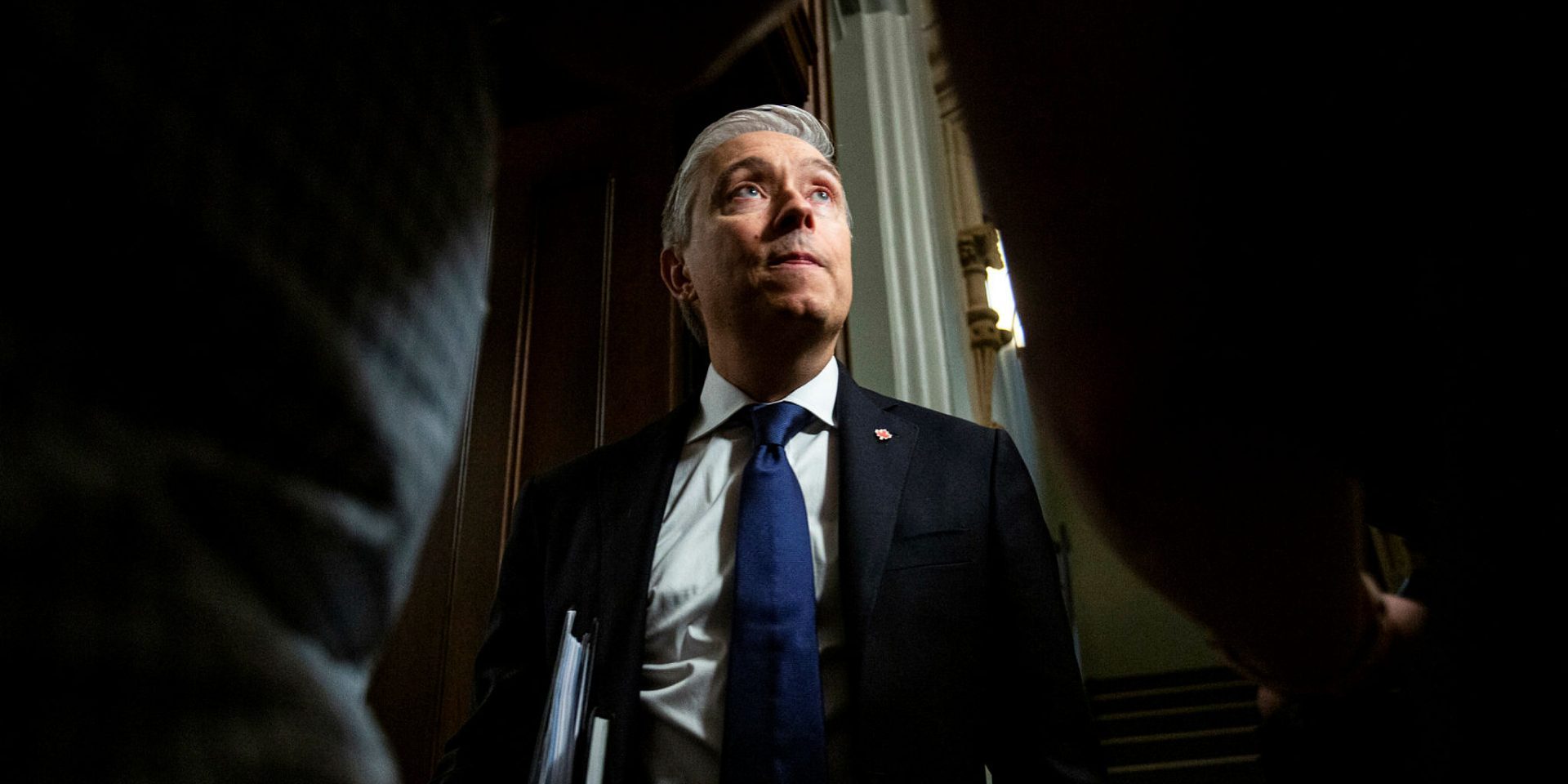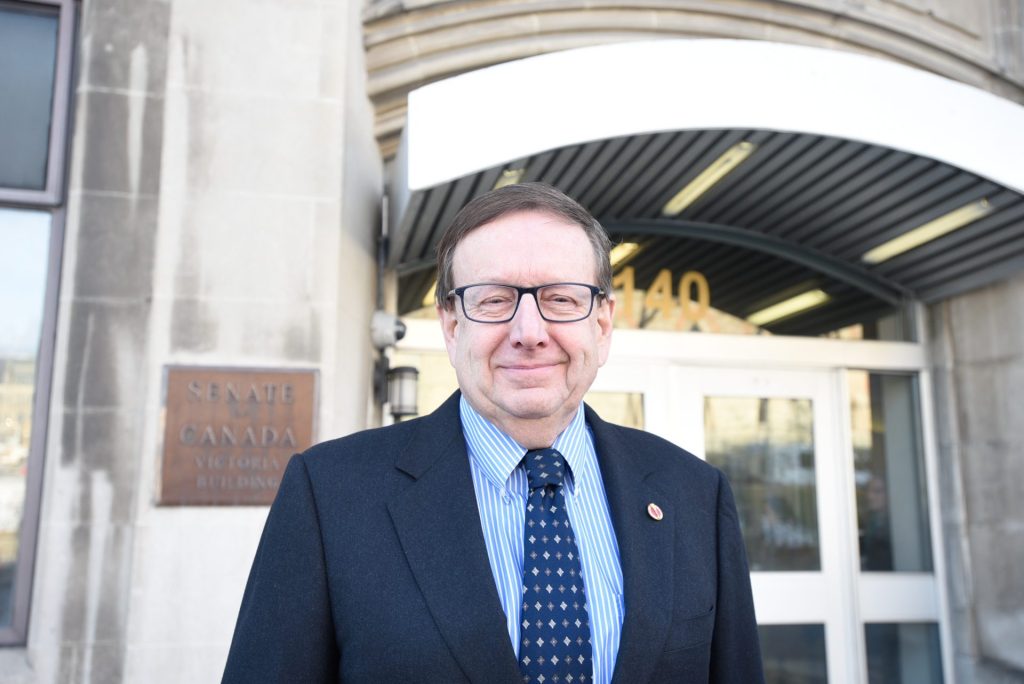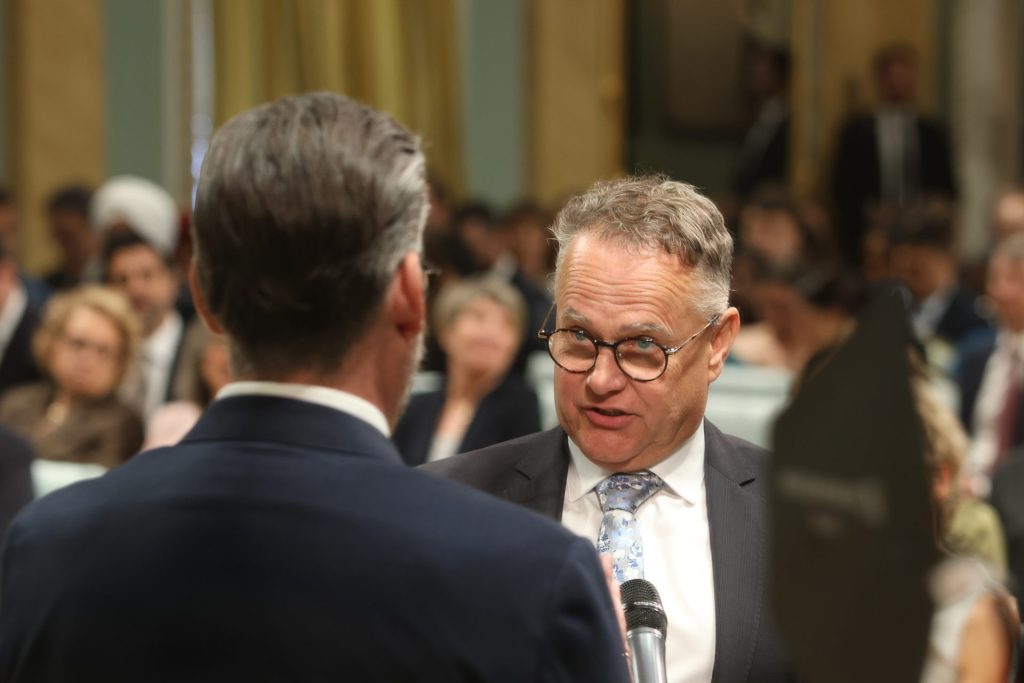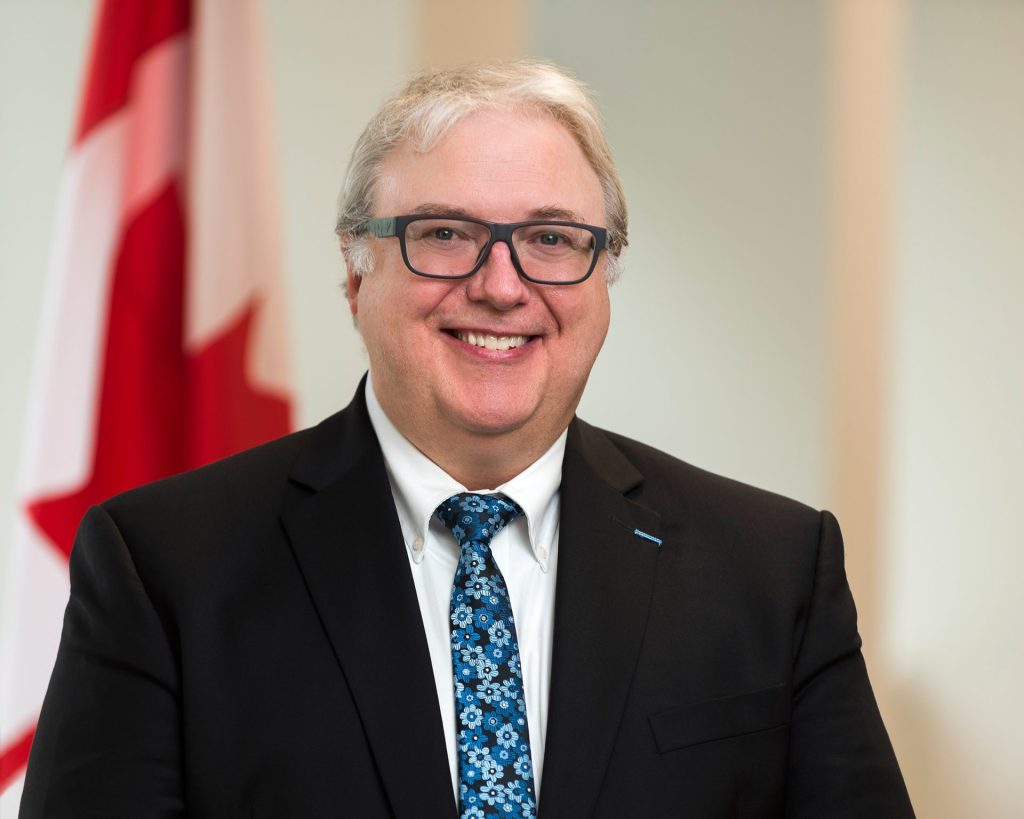CRA has ‘eroded trust,’ Senator says, as minister tasks agency with creating 100-day improvement plan

Senator Percy Downe says the Canada Revenue Agency’s 100-day plan to reduce call centre wait times will bring “clarity” on long-standing issues within the agency, which has come under fire for ballooning call wait times amid staffing cuts.
The plan should show if the CRA can accomplish quick, systemic change within a short time frame after it has lost the trust of Canadians, said Downe, who was chief of staff to then-prime minister Jean Chrétien and who has sat on Senate Finance and Internal Economy committees.
“You can’t believe what they say. Having said that, we have to give this new minister, who has a reputation for action, some optimism and support. We’ll be looking at him.”
On Sept. 2, Finance Minister François-Philippe Champagne (Saint-Maurice—Champlain, Que.) called for the CRA to implement a 100-day plan to reduce “unacceptable” delays, strengthen services, and improve access, following his visits to call centres and meeting with agency leadership.
“It is increasingly apparent that the CRA is not meeting that standard,” he said in a letter to Liberal MP Karina Gould (Burlington, Ont.), chair of the House Finance Committee.
The union representing CRA employees says wait times have “exploded to as long as 3.5 hours,” and that less than five per cent of callers are reaching an agent.
Neither Champagne, nor Wayne Long (Saint John—Kennebecasis, N.B.) who is the secretary of state for the CRA, were made available for comment.
Champagne’s letter said that he, Long, and CRA officials are “ready and willing” to appear in front of the finance committee to testify.

Downe, a member of the Canadian Senators Group from Prince Edward Island, said “one wants to be optimistic” about the review, praising Champagne for being “a minister known for action.”
But, he cautioned, Champagne is “dealing with a department that has, over the years, eroded any trust Canadians might have in them, by their constant behaviour of misleading Canadians on what they were doing.”
“We can only hope this minister can force some responsibility on that department.”
Alex Klyguine, a tax lawyer with Toronto-based firm Taxpayer Law, said Champagne’s call for a 100-day plan is not specific enough.
“It doesn’t speak to what is going to be done, how it’s going to be done, what criteria will be used, how it’s going to be measured, how improvement will be measured,” he said. “It’s quite vague, it doesn’t necessarily speak to specific, measurable goals.”
Such a vague announcement gives the impression of “creating a perception that something is being done,” he said, “[which is] also known as a publicity stunt.”
The Hill Times sought clarity from Champagne’s office as to whether the CRA’s 100-day improvement plan began on the day he released the letter, or if the plan is currently being developed, but did not receive a response by deadline.
The agency has been instructed to take “concrete steps” to improve its functioning, including piloting a new call-scheduling system and expanding digital services.
The Hill Times asked whether the CRA, in light of the 100-day plan, was reversing its plans to cut staff, as outlined in its departmental plan. The department did not address the question in its emailed response.
“The most pressing and immediate need is for the CRA to take steps to answer more calls,” spokesperson Etienne Biram said. To this end, the department is reallocating “internal resources” to onboard additional call centre representatives. “Targeted teams” are also being deployed in high-demand areas, like the Canada Child Benefit claims, he said, which “will use a variety of tools to improve turnaround times and lessen administrative burden, reducing the need for Canadians to contact us in the first place.”

Lengthy call wait times and unsatisfactory service have been a long-standing issue with the CRA.
Downe cited a 2017 auditor general’s report which found the CRA blocked more than half of the 53.5 million calls it received because its system could not handle the volume. The agency’s own reporting didn’t include these “blocked” calls, wherein callers don’t reach an agent but rather are given a busy signal or a message to call back later. The agency’s own reporting showed about 90 per cent of callers are connected, but didn’t include the calls that were blocked. When factoring in those calls, the success rate was 36 per cent.
After a decade of steady growth, the federal public service’s ranks shrank by nearly 10,000 jobs in the 2024-25 fiscal year, and the CRA bore the brunt of those cuts. The massive department reported 6,656 fewer staff between 2024 and 2025, representing 68 per cent of jobs lost in the public service, reported as of March 2025. The Union of Taxation Employees has said more than 3,300 call centre workers have lost their jobs since May 2024.
Further cuts are in the forecast for the agency. The CRA’s latest departmental plan forecasts that the agency will employ 47,732 full-time equivalent staff by 2027–28, down from the planned 50,804 for the current fiscal year. That total already represented a job reduction of 2,103 from the 52,907 staff from the year before, as a part of a steady decline reported since 2023-24, when the CRA employed more than 55,000 workers.
But, last week CTV reported that 850 call centre workers whose contracts were expiring on Sept. 5 had their work extended an extra seven months until March 31, 2026.
The agency cites the end of COVID-19 pandemic-era programs, the consumer carbon tax, the temporary sales tax holiday, and funding cuts in general as reasons behind the personnel cuts.
A forthcoming fall budget may change some of those forecasts, but this summer Champagne also directed all departments and ministers’ offices to find savings of 15 per cent within the next three years as a part of a comprehensive spending review.
While the CRA faces job cuts and dissatisfaction with its current operations, Downe said additional staff has not historically helped the CRA’s long-standing woes, and may have even contributed to incorrect information given out at call centres.
“The more staff, the more confusion they’ve created,” he said, though he said more auditors should be hired to snuff out tax cheats.
The CRA’s departmental plan, released earlier this spring, also addresses growing discontent with its call centre performance, pledging to reduce both call volumes and call times.
“Reducing call volumes will be achieved by continuing to improve digital services to make it easier for taxpayers to find information and self-serve their accounts,” the departmental plan says. “Lowering call handle time will be achieved through operational efficiencies, as well as technological improvements to improve the caller experience.”
The report also promises a new live online chat service available through the CRA’s website, as well as a generative AI chatbot, billed as available 24/7 to answer questions about charities, personal income tax, and information related to accessing a CRA account.
Taxpayers’ Ombudsperson François Boileau welcomed news of the 100-day review.

“Recently, a new surge in complaints to our office as well as current media coverage have made it clear that the public is frustrated and disappointed with the level of service they have been receiving from the CRA, especially related to its contact centres,” Boileau said in a press statement.
“Although I cannot comment on the CRA’s staffing practices, I hope that any changes the CRA makes will improve services for the public.”
Boileau’s office recommended in its 2020-21 annual report that the CRA offer a callback option without needing to call its contact centre first. The CRA was initially amenable to the suggestion, but then said it wouldn’t pursue it due to limitations in technology and the high cost of upgrading its phone system, Boileau said.
“With this in mind, I was pleasantly surprised that the 100-day plan includes a new call-scheduling system,” he said. “I still believe that such a system would greatly benefit taxpayers. I look forward to meeting with the minister and the secretary of state to discuss this plan in greater detail and to advocate for improved service for the public.”
Klyguine and Downe both said artificial intelligence could help the CRA be more efficient. Since his election, Prime Minister Mark Carney (Nepean, Ont.) has emphasized AI as a tool to “unlock productivity” within the public service.
“I think it’s possible to do that, but there is a low probability that the bureaucratic entity could achieve it within 100 days,” Klyguine said.
mglass@hilltimes.com
The Hill Times






 LICENSING
LICENSING PODCAST
PODCAST ALERTS
ALERTS













